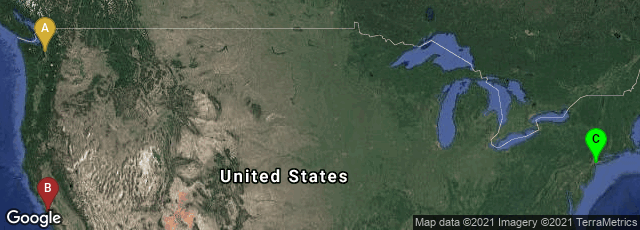
A: Seattle, Washington, United States, B: Cupertino, California, United States, C: Brooklyn, New York, United States
Judge Denise L. Cote of United States District Court, Southern District of New York, ruled on July 10, 2013 that Apple Computer had illegally conspired with five of the six biggest book publishers to try to raise prices in the e-books (ebooks) market. This verdict, which was immediately perceived to benefit Amazon.com, was expected to cause further consolidation in the publishing industry.
"The Apple case, which was brought by the Justice Department, will have little immediate impact on the selling of books. The publishers settled long ago, protesting they had done nothing wrong but saying they could not afford to fight the government. But it might be a long time before they try to take charge of their fate again in such a bold fashion. Drawing the attention of the government once was bad enough; twice could be a disaster.
" 'The Department of Justice has unwittingly caused further consolidation in the industry at a time when consolidation is not necessarily a good thing,' said Mark Coker, the chief executive of Smashwords, an e-book distributor. 'If you want a vibrant ecosystem of multiple publishers, multiple publishing methods and multiple successful retailers in 5, 20 or 50 years, we took a step backwards this week.'
"Some in publishing suspected that Amazon had prompted the government to file its suit. The retailer has denied it, but it still emerged the big winner. While Apple will be punished — damages are yet to be decided — and the publishers were chastened, Amazon is left free to exert its dominance over e-books — even as it gains market share with physical books. The retailer declined to comment on Wednesday" (http://www.nytimes.com/2013/07/11/business/e-book-ruling-gives-amazon-an-advantage.html?hp, accessed 07-11-2013).